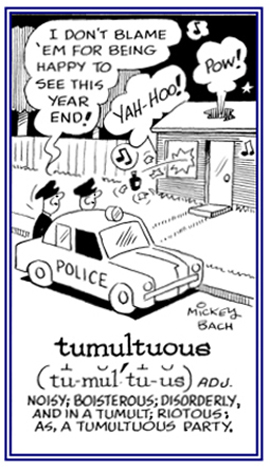tum-, tume-, -tumescence
(Latin: swelling, to swell; swollen)
2. In medicine a prominence; especially, an unnatural prominence or protuberance; as, a scrofulous swelling.
A scrofulous swelling refers to chronic enlargement and cheesy degeneration of the lymphatic glands, particularly those of the neck, and marked by a tendency to the development of chronic intractable inflammations of the skin, mucous membrane, bones, joints, and other parts, and by a diminution in the power of resistance to disease or injury and the capacity for recovery.
"Tumescent liposuctions are the most common cosmetic operations in the United States with over hundreds of thousands of such surgical operations done every year."
"The process of tumescent liposuction involves the breaking up and "sucking" out of fat from the body. This is done through a cannula (a hollow instrument) inserted subdermally (under the skin). A strong vacuum is then applied to the cannula."
2. Using language or a style of speaking that is bombastic or inflated.
"Mary's cousin had eyes with tumidly puffed (or puffy) lids."
"Harriet's tumidly swollen hand was a cause of concern by her parents so they took her to the doctor."
2. Seeming to swell; bulging.
There are dozens of different types of tumors. Their names usually reflect the kind of tissue they arise in, and may also tell us something about their shapes or how they grow; for example, a medulloblastoma is a tumor that arises from embryonic cells (a blastoma) in the inner part of the brain (the medulla)."
"Diagnosis depends on the type and location of the tumor."
"Tumor marker tests and tumor imaging may be used to diagnose patients and some tumors can be seen on the exterior of the skin or felt with the fingers or hands."
2. The formation or production of tumors.
2. A psychological or emotional upheaval or agitation: "His mind was in a series of tumults revealing his emotional disturbances."
3. A violent and noisy commotion or disturbance of a crowd or mob; an uproar: "The tumult reached its height during the politician's speech."
4. A general outbreak, riot, uprising, or other disorder: "The tumult moved toward the embassy."
5. Highly distressing agitation of the mind or feeling; a turbulent mental or emotional disturbance.
6. Etymology: from Old French tumulte (in the 12th century), from Latin tumultus, "commotion, disturbance"; related to tumere, "to be excited, to swell".
2. Chaotic, especially as a result of a popular outcry involving confusions, and emotional agitations: After the university administration rejected the students' proposal to stop an increase in fees, there were tumultuous protests on the campus.
3. Characterized by unrest or disorder or insubordination: There was a tumultuous riot at the prison when the outdoor activity period was cancelled.
4. Relating to something which is riotous and consists of disturbances and uproars: When the local football team won the National Championship, there was tumultuous joy in the streets.
5. Descriptive of raising disorderly or noisy demonstrations: It was difficult to control the tumultuous crowd of students when their team won the basketball championship.
6. Highly agitated, as the mind or emotions; distraught: Erin's mind was in tumultuous disorder when she received the telephone call from her boyfriend breaking off their engagement.




